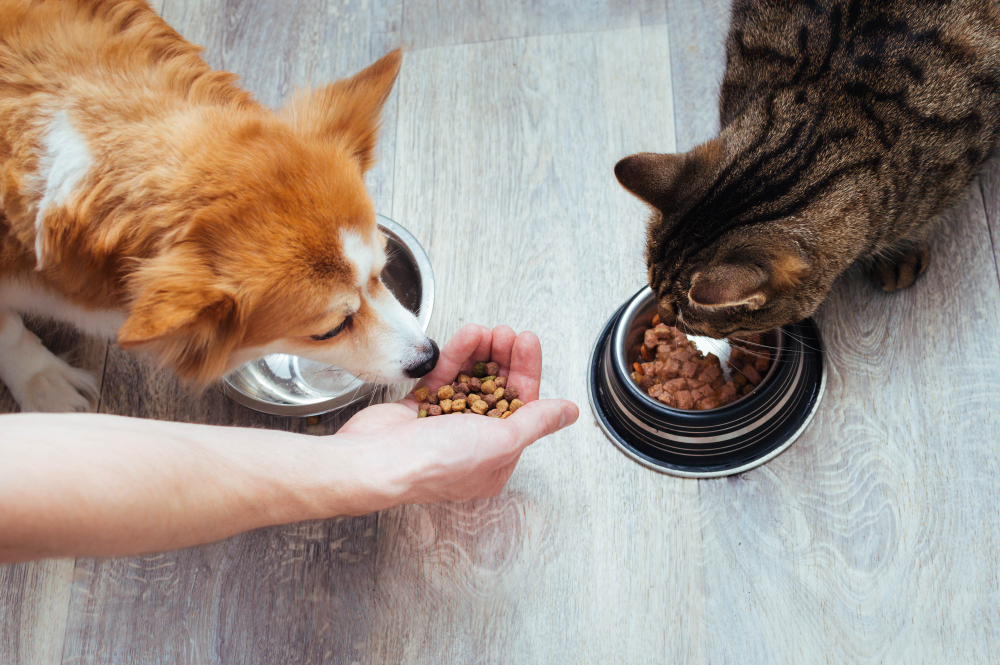Many of us are familiar with food allergies in humans and the range of reactions and side effects they cause. Food allergies in our pets are more limited, but it makes it easier to know they are struggling with an allergy. If your pet is itchier than usual, is having new gastrointestinal troubles, or respiratory issues, then food allergies could be the culprit.
If your pet does have a food allergy, it’s essential to identify the allergen so you can remove it from their diet and help them enjoy some relief. This blog will show you some of the most common food allergies in pets and how to help your pet who might be suffering from them:
What Is a Food Allergy?
Before we dive into which foods could be causing an allergy, let’s talk a little bit about what a food allergy actually is. Food allergies happen when an animal’s immune system creates an abnormal response to a specific kind of protein found in a particular food. Although we do not know why this happens, the immune system will respond to this perceived invader by causing itchiness, tummy troubles, or rashes. If you notice that your pet is suddenly itching non-stop, is having more gastrointestinal issues, or is licking a certain spot (like the feet) more, it is time for a vet visit.
Common Food Allergy Culprits in Dogs
There are actually quite a few foods that are known to trigger allergic responses in dogs. These include:
- Chicken
- Beef
- Dairy
- Wheat
- Lamb
- Soy
- Rice
- Corn
In dogs, allergic reactions will often present in the following ways:
- Itching
- Licking or chewing at certain parts of the body
- Rashes
- Redness
- Hot spots
- Scales on the skin
- Oily skin
- Hair loss
- Vomiting
- Diarrhea
- Gas
- Weight loss
- Ear infections
- Sneezing
Common Food Allergy Culprits in Cats
Cats have many of the same food allergens as dogs, with the addition of fish, and dyes used as additives. If they have a food allergy, they will also have skin issues, but might also have trouble breathing, frequent ear infections, or stomach troubles. Food allergies can develop quickly in both species. Foods that your pet has eaten for years might suddenly bring on unexpected allergic reactions. Even if your cat has never had trouble, he might now have a food allergy that’s negatively impacting his life.
Diagnosis and Treatment for Food Allergies
Before your vet can figure out a treatment plan for your pets and their food allergies, he or she must first determine what those allergens are. Veterinarians will often start with an elimination diet to try to determine the source of the allergies. Sometimes simply eliminating the food is enough to help an animal suffering from allergies. In some cases, however, a vet will recommend switching to a hypoallergenic diet, or prescribe medications to help manage symptoms. While the stringent nature of a diet trial can be exhausting and frustrating, it is the best way to diagnose food allergies.
Common food allergies in pets may be making your fur baby miserable. Let us help you get started in finding and fixing the problem.
At Union Lake Veterinary Hospital, we have proudly offered top-tier veterinary services since 1974. Whether your pet has food allergies or needs surgery, our compassionate team is here to offer premium care from the time you enter our hospital to the time you go back home. To learn more about our services or to schedule an appointment, please call (248) 363-1508.

